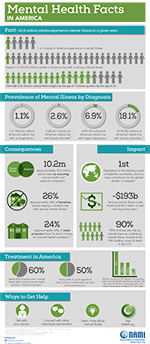20 Yet he did not waver through unbelief regarding the promise
of God, but was strengthened in his faith and gave glory to God, 21 being
fully persuaded that God had power to do what he had promised.
Romans
4:20-21
“I want a purple
sticker,” said Astrid.
“There are
no purple ones left,” said my daughter, teacher of this precocious two-year-old.
““There are green and yellow ones.”
Astrid
stamped her foot. “But I want a purple one!”
‘Well,” said
my patient daughter, “we don’t always get what we want. Sometimes we get what
we get and we don’t get upset.”
While this philosophy
is reinforced often in the pre-school classroom my daughter teaches, Astrid—and
her age mates—don’t always agree. Astrid folded her arms across her chest and
got upset. Very upset. So upset she was sent to the time-out chair.
 Are we ever
like Astrid? I know I am. I tell God all about the wonderful plans I have for
my life, if only He would get on board with them. He tells me that He’s got
better plans for me. In fact, the words from Jeremiah 29:11-13 hang on a plaque
in my living room. But honestly, when I’m trying to juggle three jobs and find
a way to pay for ever-increasing medical costs, I want to stamp my foot like
Astrid and get my own way.
Are we ever
like Astrid? I know I am. I tell God all about the wonderful plans I have for
my life, if only He would get on board with them. He tells me that He’s got
better plans for me. In fact, the words from Jeremiah 29:11-13 hang on a plaque
in my living room. But honestly, when I’m trying to juggle three jobs and find
a way to pay for ever-increasing medical costs, I want to stamp my foot like
Astrid and get my own way.
And I’ll
just bet I’m not alone. The Bible is chockablock of people who didn’t wait for God’s
plan to come to fruition but rushed ahead of Him. Sarah, wife of Abraham whose
faith in God’s promises of many descendants never wavered, didn’t side with her
husband. She took matters into her own hands by giving Hagar, her maid, to Abraham
as a concubine. The result? Broken relationships and exile.
In Genesis
27:8-17, Rebekah conspired to have her husband Isaac bless Jacob when the birthright should have gone to Esau, the first born. The result was more broken
relationships and exile. Rebekah never saw her beloved son Jacob again. And in
Genesis 30:1, Rachel, wife of the banished Jacob, became discouraged at her
lack of ability to conceive and gave her husband her maid servant as concubine.
Guess what? Broken relationships and exile.
Yet the vast
majority of Americans say they trust God and depend on Him for help. Writing
for The
New York Times in 2010, Tara Parker-Pope reported on two surveys conducted
to determine how people’s health was affected by their belief in God and His role
in their lives. Data obtained from The Baylor Religion Institute Survey and the
Work, Stress, Health Survey indicated that 82% of the respondents regularly
depended on God for help and 71% believed the events in their lives were
influenced by God.
So if everybody’s
doing it, why can’t we?
The answer
is surprisingly simple and has to do with something we all want: control. Just
like it’s really hard for me to be the passenger in the car—even though I hate
to drive—it’s difficult to totally give control of our lives over to a Higher Power,
even if we claim we are. We might say we trust God and depend on Him-and 82% of
us do—but when it comes right down to it, we’re a bit scared to put it to the
test. We’d like a safety net under that ledge, please, and perhaps the firemen
standing by.
 But what if
we REALLY trusted God? Not just said so on Sunday and went our own way on Monday.
What if we whole-heartedly chose to believe in Hebrews 11:1 and put our faith
in our pockets each day along with our cell phones? What if, instead of
stamping our feet and crossing our arms and being upset we didn’t get a purple
sticker, we decided to be grown-ups about it?
But what if
we REALLY trusted God? Not just said so on Sunday and went our own way on Monday.
What if we whole-heartedly chose to believe in Hebrews 11:1 and put our faith
in our pockets each day along with our cell phones? What if, instead of
stamping our feet and crossing our arms and being upset we didn’t get a purple
sticker, we decided to be grown-ups about it?
On Sunday, Pastor
Aaron talked to us about having real conversations—not grumbles—with God. After
all, He can take it. These are his five suggestions:
1. Stop pretending. While 82% of
Americans say they believe God plays an active role in their lives, the same
percentage are likely to hold onto their disappointments and challenges lest
anyone think they’re not trusting God. Let’s let God search our hearts (Psalm 139:23-24)
and let’s share the truth about how we feel.
2. Confess when you’re wrong. We all act
stupid sometimes and we all want our own way. God already knows whatever you’re
going to confess, be it to Him or another person.
3. Tell God how you feel. It’s okay to
be disappointed you didn’t get the job or win the lottery. David was honest
with God about his disappointments! Once you get rid of the negative emotions,
God can fill it with positive things.
4. Tell God you love Him. That doesn’t
mean you always understand where He leads you. But reminding yourself of God’s
attributes will remind you of why you should trust Him.
5. Tell God you’re puzzled. Life doesn’t
always look good. Sometimes a fish looks like a gorilla. Sometimes we can’t
tell what the heck it looks like. But we can trust that God has made it for us.
So it’s got to be awesome.
And back to
Astrid, who spent the allotted minutes in time-out and decided that a yellow
sticker would be okay. So my daughter affixed a yellow sticker to Astrid’s chart
and the child went off to play. The next day, when sticker time came around, my
daughter held out the choices to Astrid. The little girl studied them for a
moment, then put her arms around her teacher and said, “You choose. I trust you,
Miss Bonnie.”
Good for
you, Astrid! I’m trying to learn to trust God that way, too, no matter what
color sticker He gives me.







